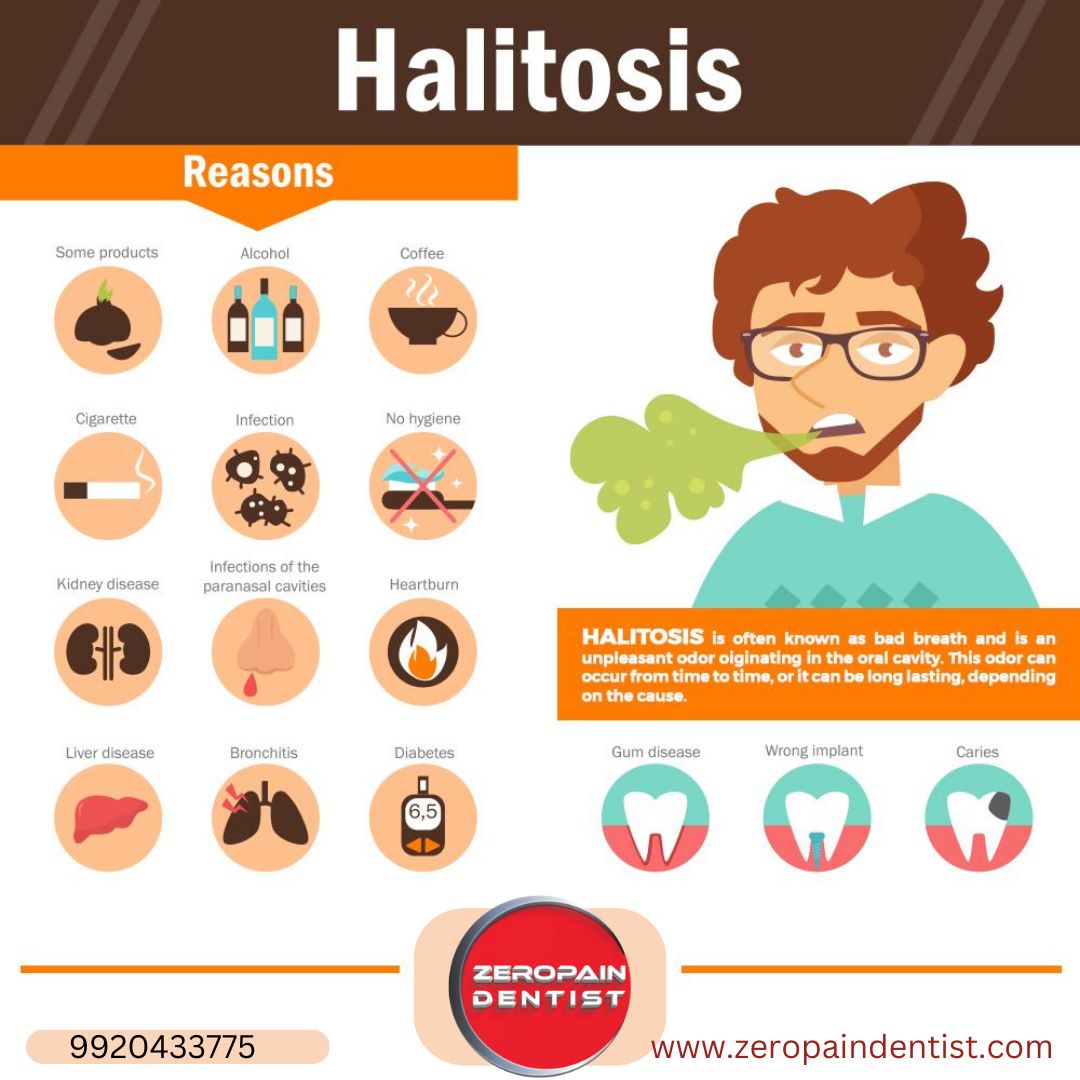What is halitosis?
Halitosis is an oral health problem where the main symptom is bad smelling breath. In most cases, finding the cause of the bad breath is the first step toward treating this preventable condition. Halitosis (bad breath) is mostly caused by sulphur-producing bacteria that normally live on the surface of the tongue and in the throat. Sometimes, these bacteria start to break down proteins at a very high rate and odorous volatile sulphur compounds (VSC) are released from the back of the tongue and throat.
Causes of Halitosis:
1. Poor oral hygiene: Not brushing and flossing regularly can lead to a buildup of bacteria in the mouth, which can cause bad breath.
2. Dry mouth: Saliva helps to wash away bacteria and food particles that can cause bad breath. If you don’t produce enough saliva, bad breath can result.
3. Certain foods: Eating foods like garlic and onions can cause bad breath.
4. Tobacco products: Smoking and chewing tobacco can cause bad breath.
5. Medical conditions: Certain medical conditions, such as sinus infections, diabetes, and acid reflux, can cause bad breath.
Effects of Halitosis:
1. Social isolation: People with bad breath may feel embarrassed and avoid social situations.
2. Low self-esteem: People with bad breath may feel self-conscious and have low self-esteem.
3. Poor oral health: Bad breath can be a sign of poor oral health, which can lead to other health problems.
4. Relationship problems: Bad breath can cause tension in relationships and make it difficult to be close to someone.
How Our Natural Treatment Works



